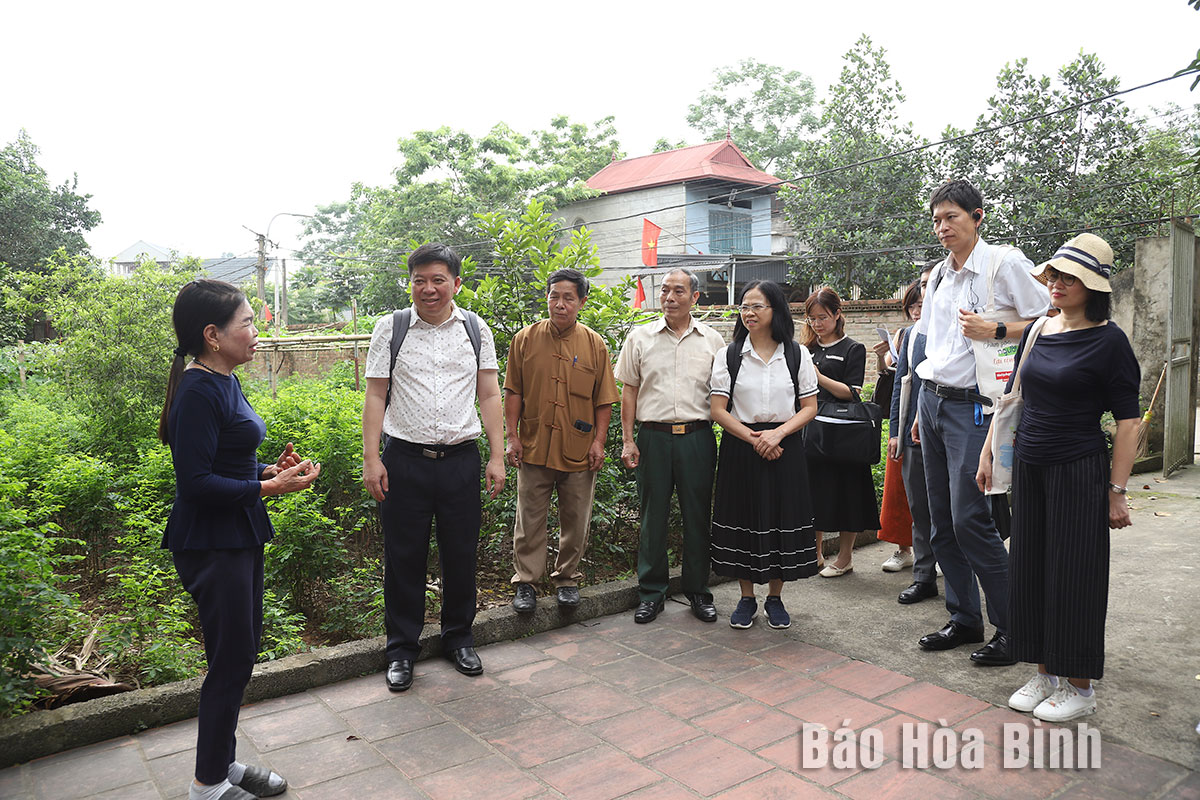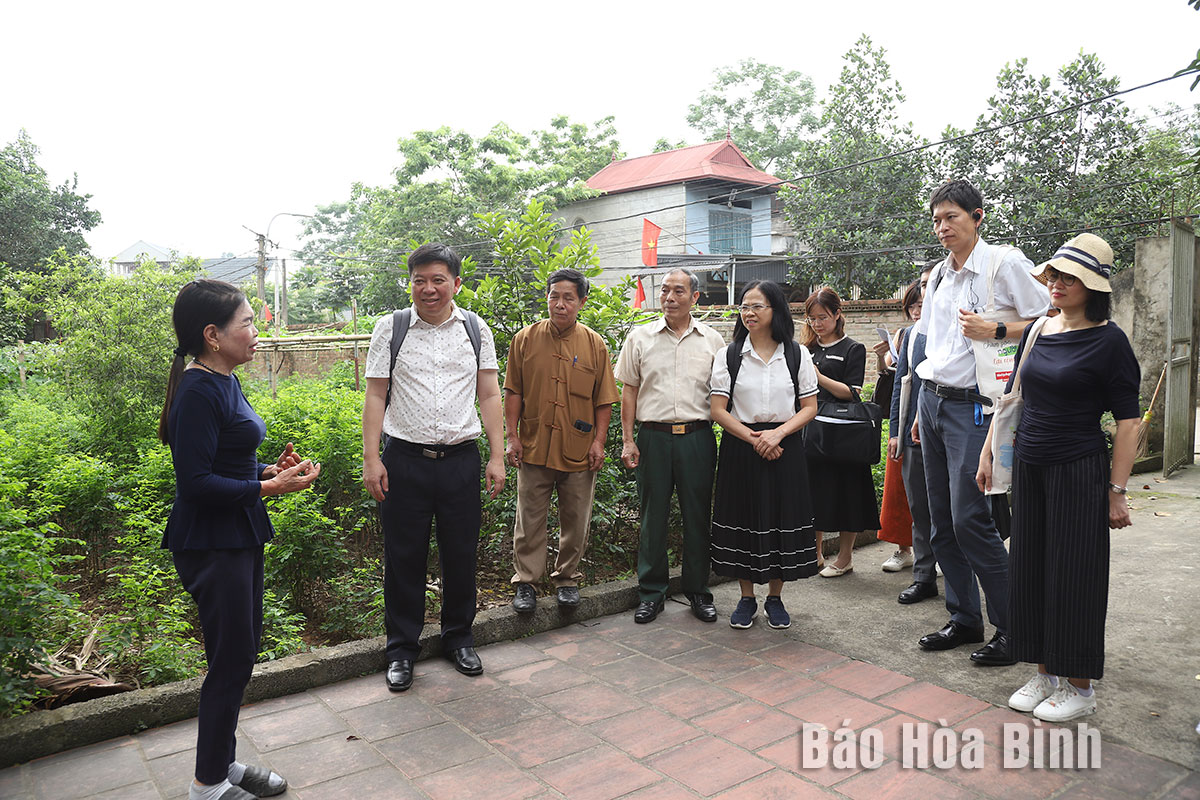
After three years of implementation, the Japanese-funded project "Reducing Income- and Health-related Vulnerability of Older Persons” (Project VIE071 ) has shown efficiency in Hoa Binh province, one of its six target localities. Thirty inter-generational self-help clubs (ISHC) were established under the project, helping local elderly well adapt to an aging society.
Dinh
Thi Chien (first left), a member of the inter-generational self-help club in
Hanh Phuc village, Hoa Son commune, Luong Son district, introducing her
family’s model to improve income.
Welcoming a delegation from the Japanese Embassy
and sponsors of the Project VIE071, Dinh Thi Chien, a member of the
inter-generational self-help club in Hanh Phuc village, Hoa Son commune, Luong
Son district, said thanks to the soft loan provided by the club, she has been
able to expand her vegetable farm and earn stable income of 4 million VND (over
157 USD) a month.
President of the Hoa Binh Elderly Association
Bui Tuan Hai described the clubs as a useful playground where old people have
opportunities to take part in various practical events to improve their health
and income.
To date, 103 ISHC have been set up in 79 out of
the 151 communes, wards and towns, attracting the participation of over 5,200
members, with more than 2,000 of whom able to access concessional loans, he
said, adding all of the clubs have built their own funds.
Nguyen Thi Nga, a social support specialist from
the World Bank (WB) in Vietnam, said the project was carried out in Hoa Binh, a
fast-aging locality, aiming to equip the elderly with necessary self-care
skills and those to increase income.
It has provided lessons to expand the model
across the province as well as others in the vicinity, she said, adding the WB
will continue seeking opportunities and mobilising resources for activities to
care for and promote the elderly’s roles.
The World Bank and partners
launchedproject earlier this year, aiming to reduce economic and health
vulnerability of older persons in Vietnam, under a 2.75-million-USD grant,
funded by the Government of Japan throughthe Japan Social Development
Fund, administered by the World Bank. Implemented by HelpAge International in
collaboration with Association of the Elderly in Vietnam, the project is
supporting the scale up of a community-based model for elderly care that
promotes economically productive, healthy, and active ageing. It is estimated
that 27,000 people in six provinces will benefit from the project’s
interventions, 70% of them elderly.
Covering eight areas, the project has directly
benefited 11,618 people, organising 80 free consultation and health examination
sessions. So far, 96% of the club members have had health insurance cards. The
project has mobilised over 80 million VND (3,142 USD) for social security
activities, and attracted 310 volunteers to provide home care for nearly 200
people so far.
The emulation movement "Hoa Binh joining hands to build new-style rural areas” has been widely spreading, becoming a driving force that motivates the localities to renew rural landscapes and improve the material and spiritual lives of the residents. In this movement, the people play a central role-both as the main implementers and direct beneficiaries of its outcomes.
In response to the global digital revolution, Hoa Binh Newspaper is transforming itself into a modern and multi-platform media hub, blending cutting-edge technology with a restructured newsroom and a new generation of tech-savvy journalists.
Hoa Binh province’s Association of the Elderly recently held a conference to review the project on expanding the inter-generation self-help club model until 2025.
In a move to implement Resolution No. 57-NQ/TW, issued on December 22, 2024 by the Politburo, which targets breakthroughs in science-technology development, innovation, and digital transformation, the Hoa Binh provincial Department of Health has issued a plan to roll out the "Digital Literacy for All” campaign within the local health sector.
An Nghia Commune (Lạc Sơn District) is one of the communes that achieved the tha standard of the national new rural area in 2018. Entering a new development phase, the commune is now trying to meet the criteria for the advanced new rural development. With the strong political will and the public consensus, the commune is gradually overcoming the challenges to reach this goal, aiming for the sustainable development.



